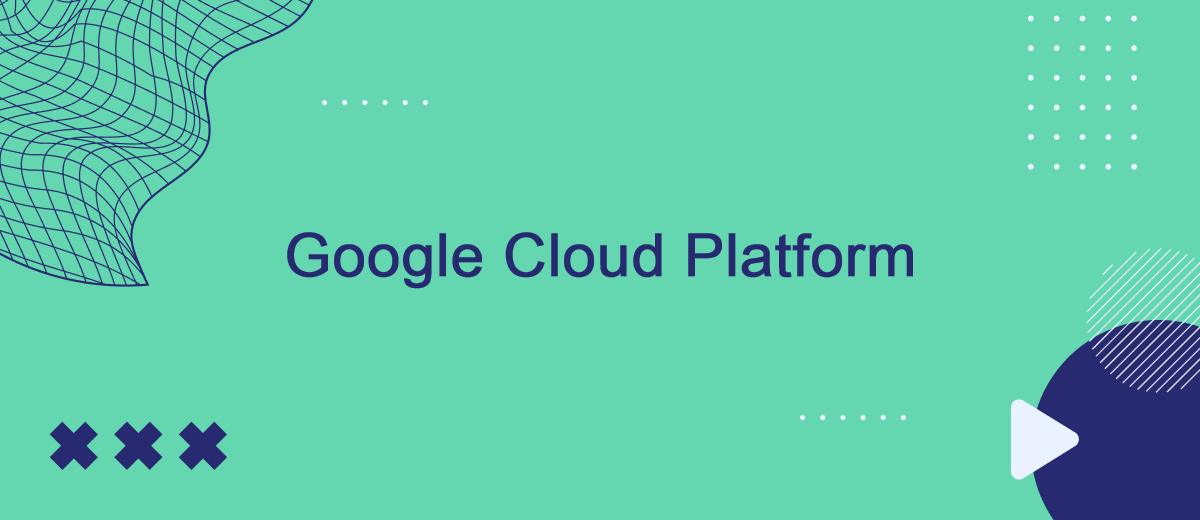The top three leaders in the cloud services market for many years include Amazon Web Services, Microsoft Azure, and Google Cloud. In this article, we will talk about the platform from Google Corporation, which has more than 100 cloud services for various purposes.
Evolution of Google Cloud
Google Cloud Platform (GCP) is one of the key cloud service providers in the market. It provides a suite of cloud services that include tools for computing, data storage and sharing, analytics, development, AI/ML technologies, and more. GCP offers its services in infrastructure as a service (IaaS), platform as a service (PaaS), and serverless computing formats. The underlying infrastructure is also used to run other company products – Google Search, Google Docs, Gmail, and others.
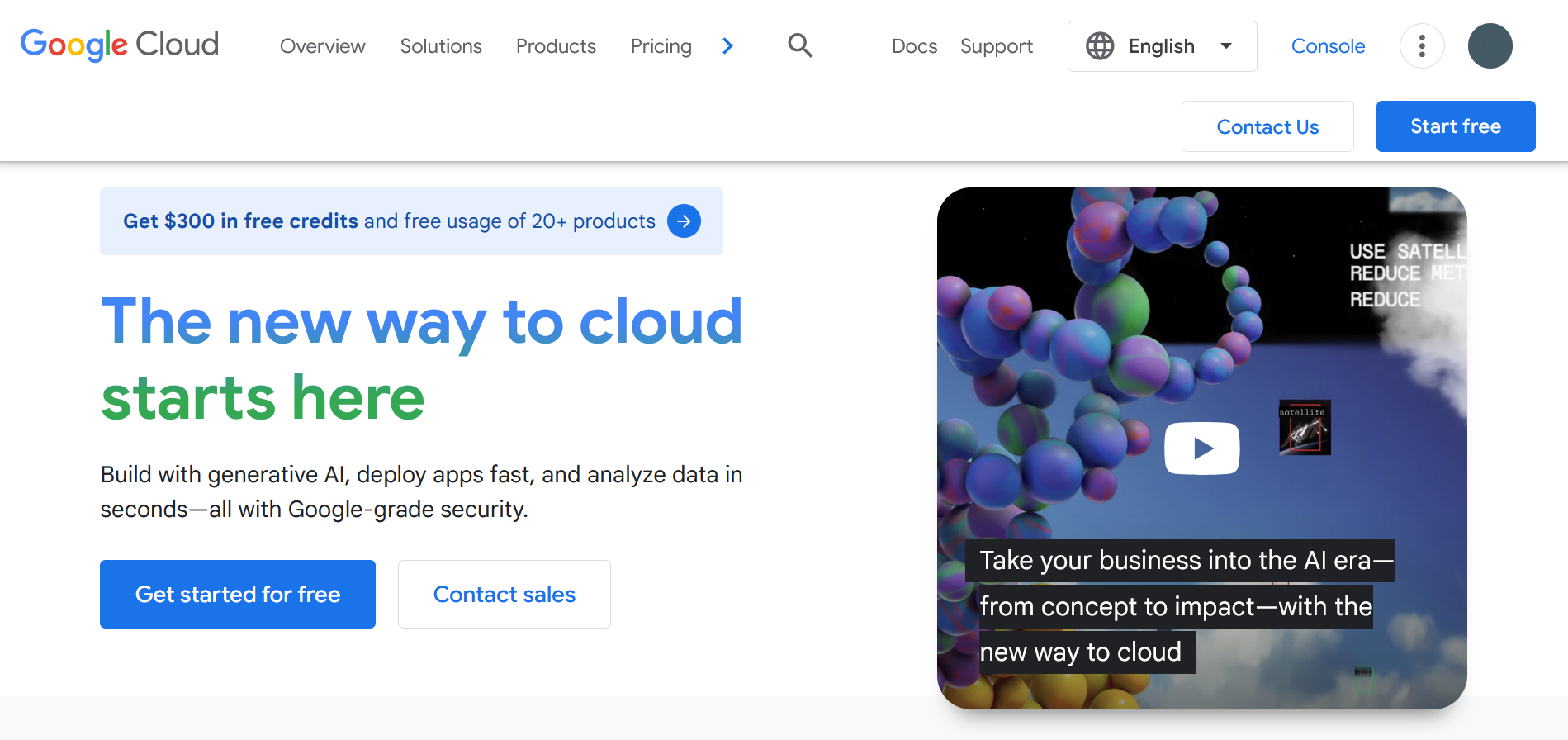
The service launched in 2008 as an App Engine tool that allowed developers to run their own apps on Google's infrastructure. At first, it was available only to 10,000 developers. Each of them received 500 MB of cloud space and 10 GB of traffic per day. At that time, Google was noticeably behind other providers of similar software. For example, Amazon had already been providing customers with a full-fledged AWS cloud computing system with EC2 and S3 storage for several years.
In 2010, Google Cloud Storage appeared as part of the platform. At the same time, the launch of preliminary versions of the Google API – BigQuery and Prediction API – was announced. In 2011, the GCP functionality was supplemented with an SQL module, and in 2012 it included the Compute Engine, which allows you to deploy Google Cloud Web Server Apache on a virtual machine (VM). In 2014, the developers launched an alpha version of the open-source container manager Google Kubernetes Engine.
In 2015, Google Cloud Monitoring, Google Cloud Pub/Sub, Google Cloud DNS, and Google Dataflow were added to the system's tools. In 2016, the release of the cloud computing management service Stackdriver was presented. In 2017, beta versions of Cloud Spanner and IoT Core appeared. Google Cloud Memorystore was launched in 2018, and Google Cloud Run was launched in 2019. In 2021, Google announced the creation of Google Kubernetes Engine Autopilot, and in 2023 it introduced generative AI technologies into GCP services.
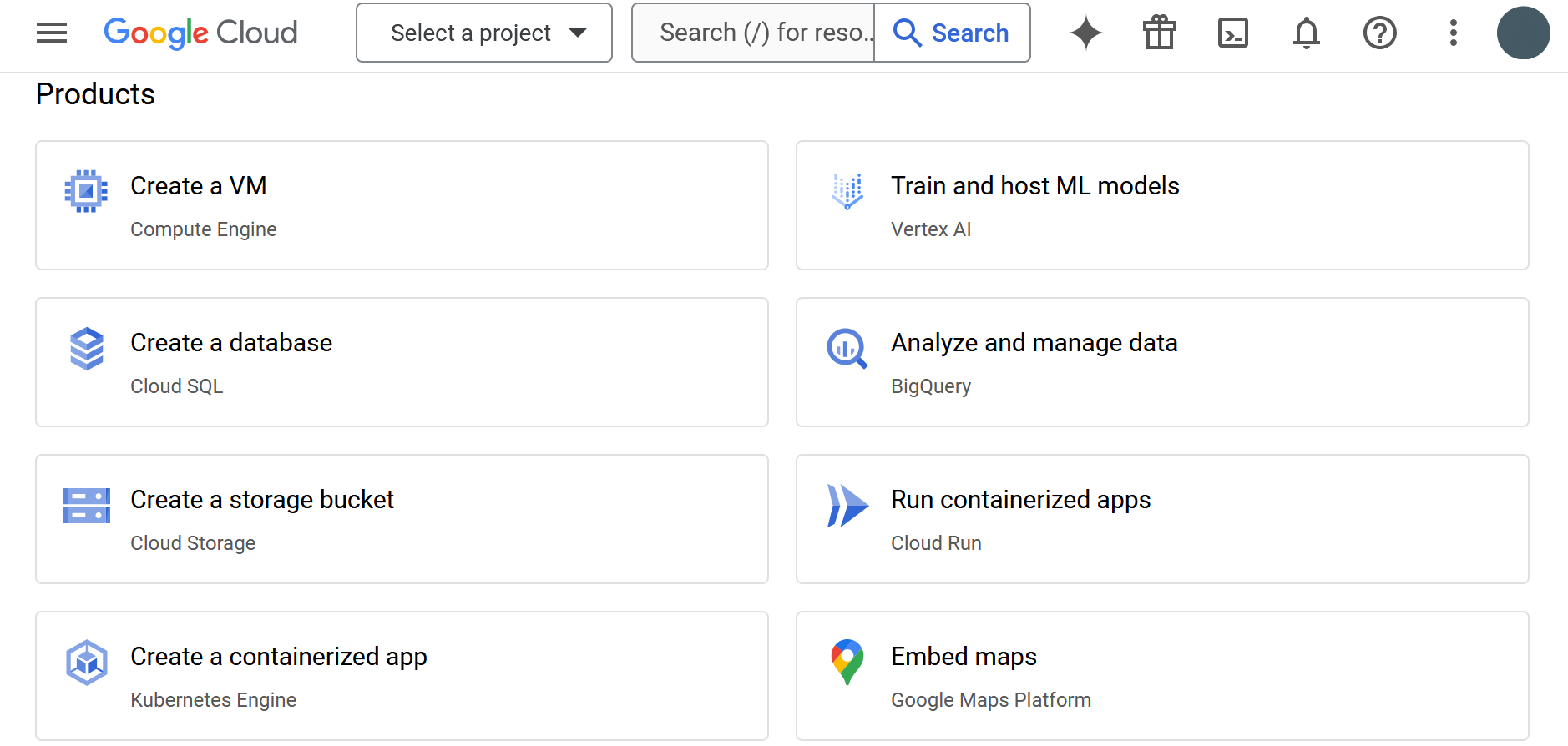
Having familiarized yourself with the main points of GCP development, it’s time to move on to a more detailed study of the platform. The best idea of what Google Cloud is can be found by learning about the services it offers.
Core Services
As of 2024, Google Cloud Platform has more than 100 services distributed across 5 categories:
- Computing and hosting.
- Storage and databases.
- Web.
- Big Data.
- Machine learning.
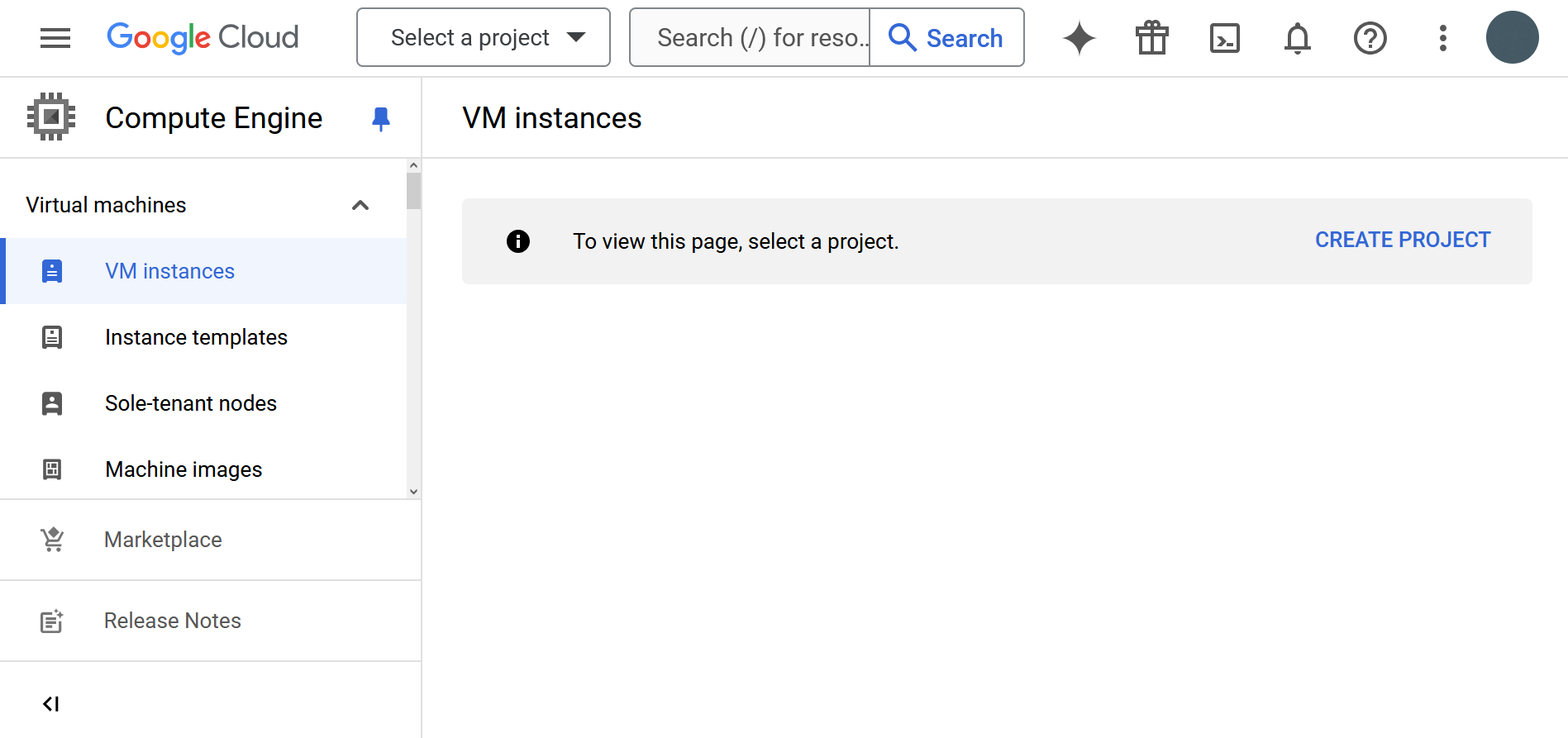
The system's global infrastructure supports 24 geographic regions. Each of them is divided into availability zones.
- Automate the work with leads from the Facebook advertising account
- Empower with integrations and instant transfer of leads
- Don't spend money on developers or integrators
- Save time by automating routine tasks
Key GCP services include:
- App Engine. A service that allows developers to create and deploy applications based on Google infrastructure. It simplifies administration and scalability, eliminating the need to rent and configure expensive hardware.
- Compute Engine. A service that provides resources for cloud computing with the ability to rent certain CPU, GPU, or cloud TPU capacities. Suitable for performing complex large-scale data processing and analysis tasks, as well as creating and running virtual private servers (VPS) on Google Cloud.
- Cloud Storage. A RESTful service for cloud data storage in Google infrastructure. Provides high performance, flexible scalability, and data security, and has features for sharing.
- Datastore. It is a fully managed non-relational database. It offers rich query capabilities, atomic transactions, and automatic scaling based on load. Suitable for applications with both 1000 and 10 million users.
- Virtual Private Cloud. A pool of computing resources that can be used to deploy applications on a private network with routing, network firewall, and IP address allocation policies.
- Cloud SQL. Google Cloud SQL allows you to create, configure, and use relational databases in the cloud. It is responsible for database administration and management, freeing users from participation in these processes.
- Cloud Monitoring. This integrated monitoring service enables you to monitor the overall health, performance, uptime, and other metrics of cloud applications by collecting data from a range of sources.
- Cloud Workstations. Fully managed and customizable development environments. They are accessible via a browser or IDE. Workstations have functionality for scaling, management, and protection.
- BigQuery. The Big Data analysis service has large storage, supports special queries, and makes it possible to share insights with other users.
- Document AI. This is one of the main Google Cloud AI services. It provides pre-trained models and tools for automated document processing. In addition, there is a Warehouse module designed for storing, searching, and organizing them.
- Translation Hub. The fully managed service uses AI technologies to automatically translate documents between multiple languages.
- Vertex AI Platform. The platform allows you to manage the full development cycle of AI and ML technologies. Users can store and manage datasets, functions, and models here, create pipelines to train models, and test and deploy them.
Pros and Cons
The platform has many advantages, thanks to which it has gained high popularity among a wide audience and confidently remains in the top three among cloud service providers.
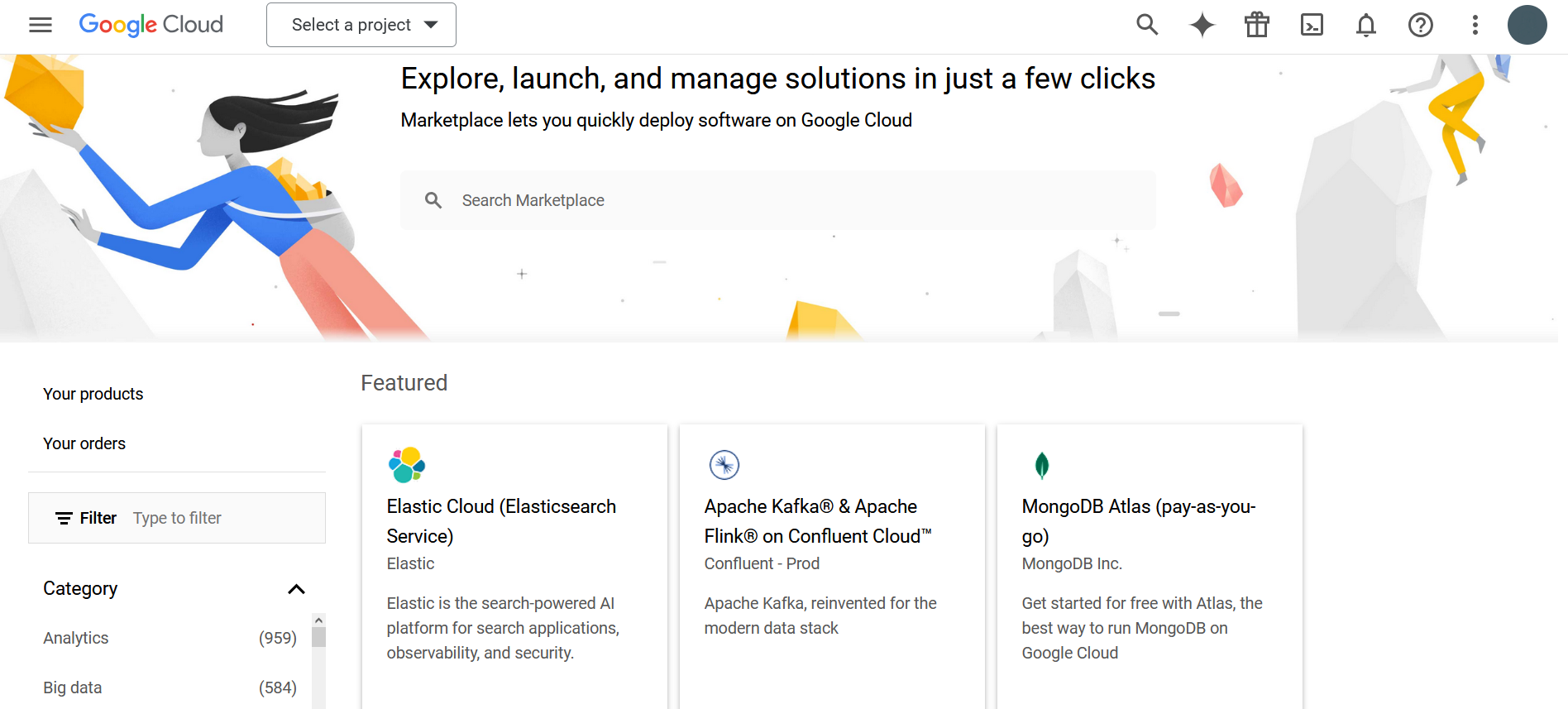
Advantages that have ensured its success:
- Rich functionality. The system offers a host of services and ready-to-deploy solutions from a number of categories. For example, Google Cloud Marketplace gives users the ability to connect, deploy, and manage GCP-integrated third-party applications.
- Access to innovation. The company quickly implements innovative tools and technologies: artificial intelligence and machine learning algorithms, large language models, and more.
- Detailed documentation. A solid knowledge base is one of Google Cloud's greatest strengths. Each section contains a theoretical and practical part. This way, users can get the most complete information about the selected function or service.
- Economical. The price-to-functionality ratio of GCP products is considered one of the best on the market. Users pay only for the services they need using the pay-as-you-go model. Their final cost is determined by the power, load, and amount of data they require.
However, Google Cloud services are not without certain disadvantages. The cons include:
- Difficulty of implementation. Deploying digital infrastructure in a GCP cloud computing environment requires highly qualified specialists and considerable experience.
- Lagging behind competitors. GCP appeared on the market later than its main competitors (AWS and Azure) and to this day lags a little behind them. For example, it offers only more than 100 services, while AWS and Azure already have over 200.
- Internet addiction. The performance of most platform resources directly depends on the quality of the internet connection. Their stable operation is difficult to achieve in regions with unreliable network access.
- Binding to the supplier. Some Google Cloud users may have difficulty integrating systems and solutions. In addition, there are sometimes problems with the migration of third-party applications and other digital resources.
Areas of Application
The global infrastructure of the platform covers not only GCP services but also other products of the corporation, including Google Search, Gmail, and many others. The functionality and integration of system elements with each other and with external software make them in demand among millions of individual users and companies around the world.
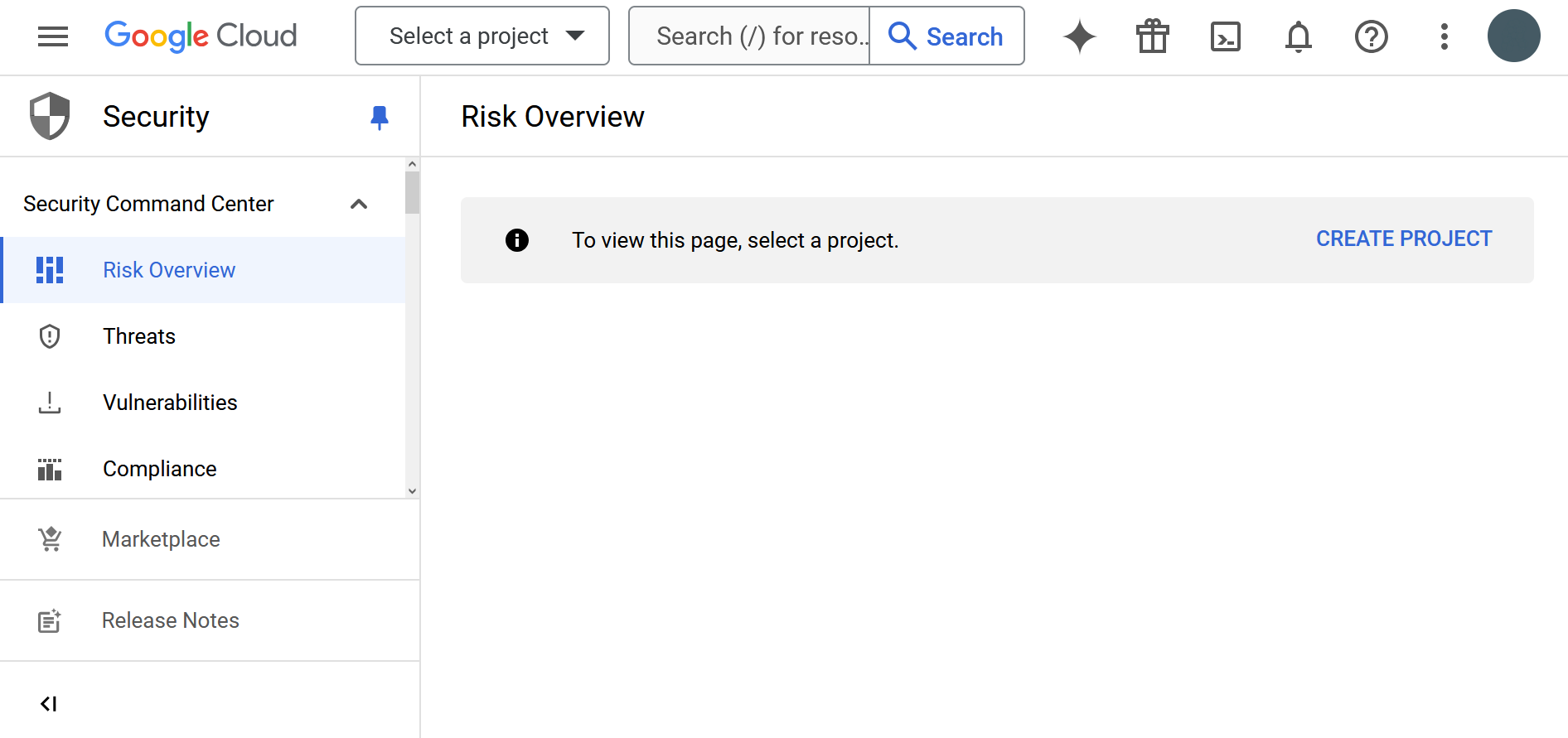
Main Google Cloud case studies:
- Retail. In this area, service resources are used to ensure the functionality of online stores, automated collection and processing of customer data, personalization of marketing campaigns, and so on.
- IT industry. GCP tools help optimize the costs of hardware and software needed to develop, test, deploy, and scale applications.
- Web hosting. The platform offers a range of web application hosting services. These include containers, virtual machines (VMs), load balancers, and more.
- Finance. Google Cloud products are actively used by financial companies from different areas: banking sector, blockchain projects, insurance, and others.
- Production. Google cloud services are in great demand among businesses in a range of industries, from pharmaceuticals to aerospace. With their help, they optimize supply chains, control and improve product quality, manage robotics and the Internet of Things, and forecast demand.
- Public administration. Government agencies and administrative bodies use GCP resources to digitize services to citizens, improve the quality of infrastructure, and protect information. One example is Google Cloud Security tools.
- Media and entertainment industry. The platform provides the necessary functionality for creating, storing, and distributing content, interacting with audiences, and protecting copyrights.
- Healthcare. Using Google Cloud, medical institutions can store and analyze patient data, provide assistance remotely, conduct research and development, and improve the quality of diagnostics and therapy.
- Education. GCP resources help academic institutions flexibly manage student data, manage the learning process, and monitor progress online.
Pricing and Plans
GCP offers pay-as-you-go pricing, allowing users to pay only for the services they need. There is no upfront fee or penalty for cancellation. For each service, a detailed price list is provided with a description of the available resources, capacities, capabilities, and their prices.
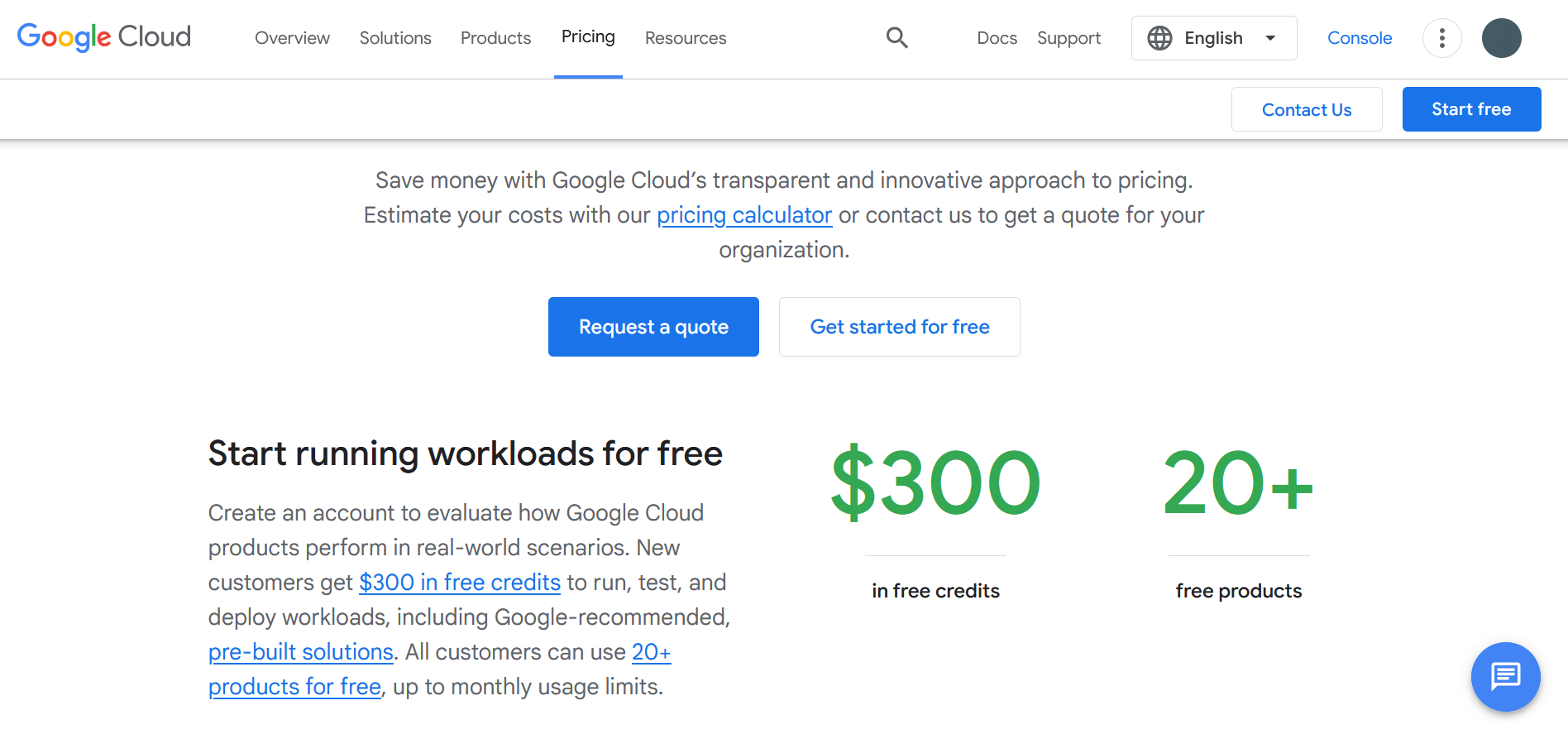
After registration, $300 in free credits is credited to the user’s internal account. They can be used to run, test, and deploy applications, as well as other system-supported processes. In particular, credits are suitable for paying for pre-installed solutions recommended by Google.
Google Cloud Free Tier provides limited free access to over 20 popular services. All users of the platform can use them without any payment for an unlimited time. Free resources are renewed in your account after a certain period of time – usually once a month.
Conclusion
GCP rightfully occupies an honourable third place in the global market of cloud service providers, where its share balances at 10–12%. It provides users with more than a hundred different services in a number of areas: from cloud computing and databases to managed development environments and training ML models. The system's products are used daily by millions of people around the world, including large corporations and freelance developers. Google Cloud Platform offers very flexible and affordable pricing, and the free plan with support for over 20 services makes it even more attractive.
If you use Facebook Lead Ads, then you should know what it means to regularly download CSV files and transfer data to various support services. How many times a day do you check for new leads in your ad account? How often do you transfer data to a CRM system, task manager, email service or Google Sheets? Try using the SaveMyLeads online connector. This is a no-code tool with which anyone can set up integrations for Facebook. Spend just a few minutes and you will receive real-time notifications in the messenger about new leads. Another 5-10 minutes of work in SML, and the data from the FB advertising account will be automatically transferred to the CRM system or Email service. The SaveMyLeads system will do the routine work for you, and you will surely like it.
